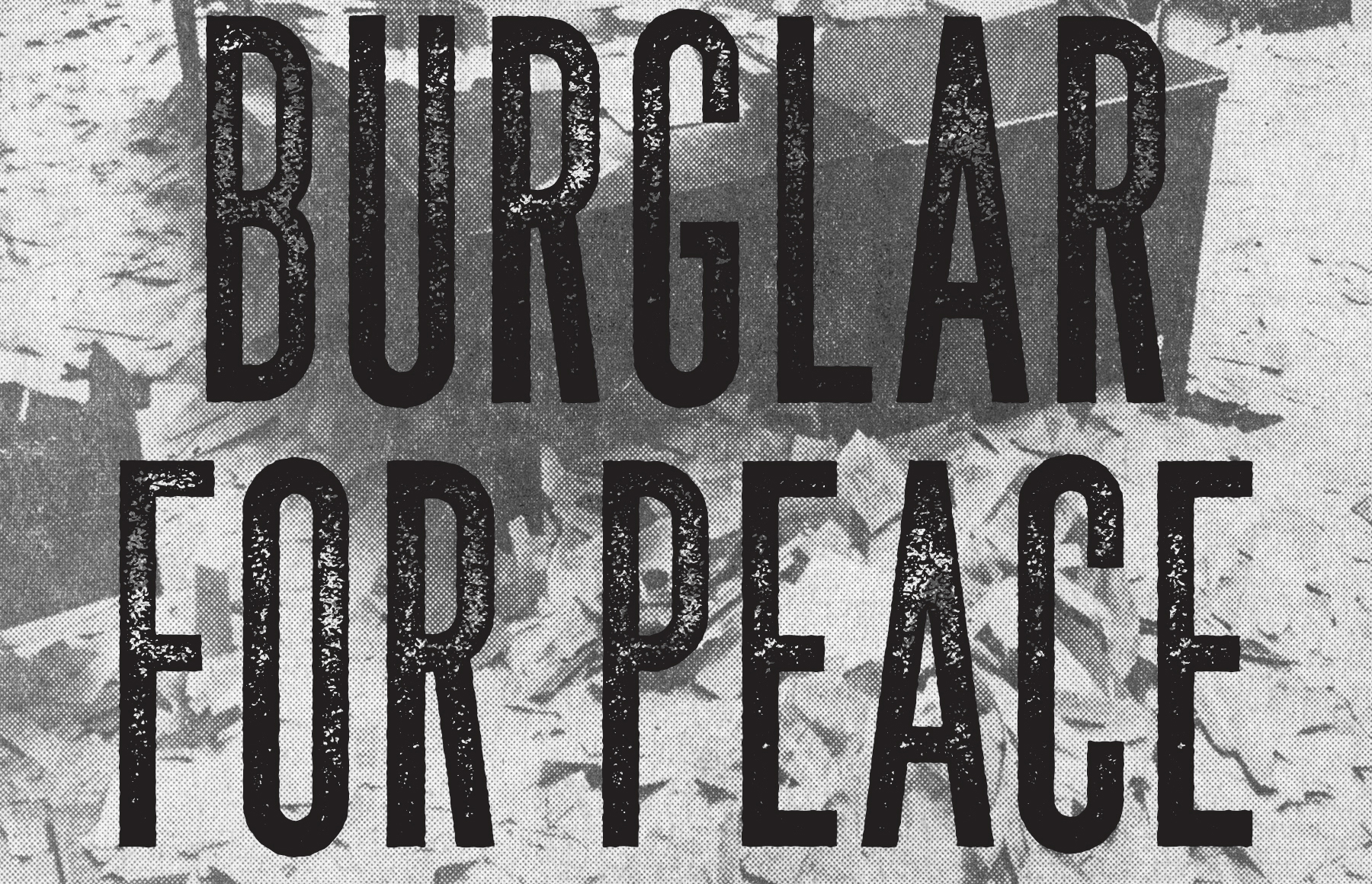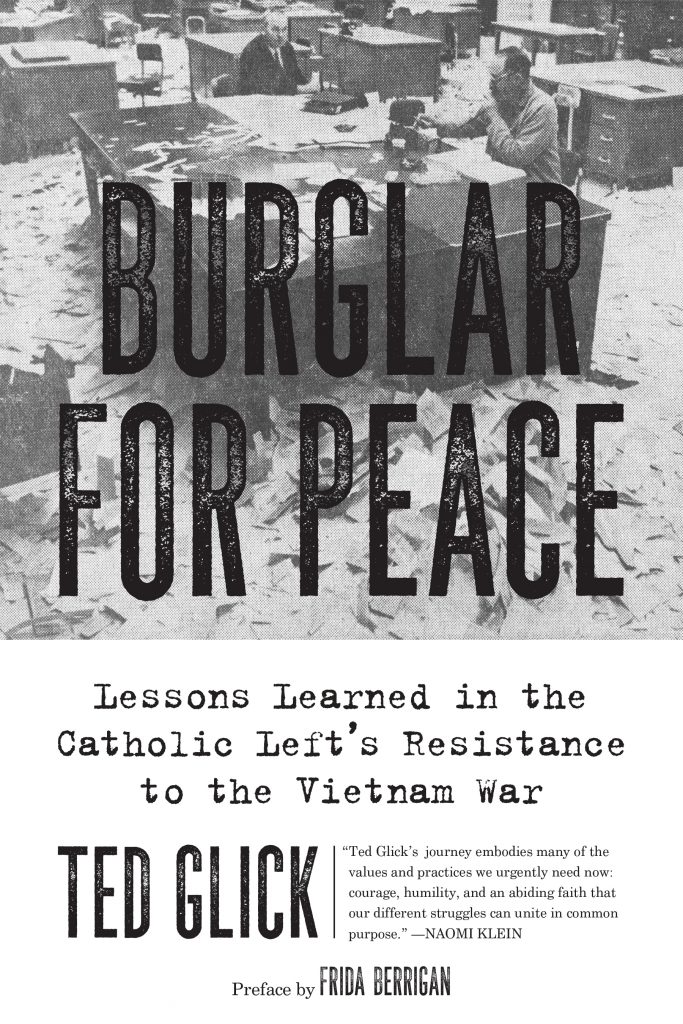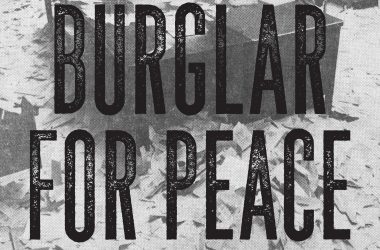By Ron Jacobs
Counterpunch
August 28th, 2020
Like many other adolescents of my generation, I attended many protests against the US war in Vietnam. Like many antiwar protesters, I was inspired by many different writers, philosophies and other protesters. Among those inspirations—amidst the youthful rebels in SDS and the Yippies, the writings of Karl Marx and Jean Paul Sartre, and the militant pacifism of Martin Luther King,, Jr. and David Dellinger—were the actions, essays and prayers of male and female religious antiwarriors like those involved in the burning of draft files and indicted for a non-existent plot to kidnap Henry Kissinger and hold him hostage until the US withdrew from Southeast Asia.
My personal experience with this particular form of radical politics came about through my friendship with a half dozen Jesuits who were studying at the Sankt Georgen Seminary in the Sachsenhausen district of Frankfurt am Main in what was then West Germany. The men I knew from the seminary had a variety of political opinions ranging from radical leftism that bordered on liberation theology (which was taking form in those days) to a compassionate conservatism to a completely non-political perspective. It was the radical left-leaning seminarians that helped my friends and I mimeograph leaflets and posters that we would then paste on buildings occupied by the US military. In addition, a sympathetic Anglican priest whose church served the English-speaking community in Frankfurt lent us the use of the church’s mimeograph machine to print copies of the “underground” newspaper some of us distributed to our fellow students and various GIs we knew.
I mention these relationships to give an idea of how universal the antiwar sentiment was in the early 1970s, even among US military members and their children. Furthermore, it serves as a good way to introduce a recently published memoir by a member of the US Christian left who participated in several direct actions against draft boards and other facilities of the US government in an attempt to slow down the war machine. That memoir, titled Burglar for Peace: Lessons Learned in the Catholic Left’s Resistance to the Vietnam War, is Ted Glick’s tale of his decision to engage in illegal direct action against the warfare state and a history of the movement itself. Glick’s narrative is intensely personal; he describes his growing awareness of the war’s immorality and his frustration with its seeming permanence. His story includes descriptions of various actions and the planning that went into them. Like Betty Medsger’s definitive text on the theft and release of FBI files stolen from the FBI office in Media, PA. titled The Burglary, Burglar for Peace is an important document of the movement against the US war on the Vietnamese. Likewise, it is the testament of a human enraged by the immorality of his government and the apparent acceptance of that immorality by his fellow citizens.
Indeed, it is that apathy that compelled Glick and his fellow resisters to break the law—in order to awaken the conscience of a nation. Additionally, as Glick explains in the text, many of the actions actually did interrupt the operations of the Selective Service. Since the local draft boards did not usually make copies of the draft files stored in their offices, the destruction of those files meant that there were no records of the individuals on file. In today’s world of computer databases, cloud servers and the like, destroying selective service files would require considerably more knowledge (but perhaps less physical danger) than it did in the 1960s and early 1970s.
Another aspect of this memoir is Glick’s description of what he calls the Ultra Resistance. That is, the underground religious resistance to the war in Vietnam. He discusses interpersonal relationships among the clergy and lay people involved in the loose knit group; their disagreements and the often-transient nature of their lives as they traveled to different cities and carried out actions. Occasional conflicts between individuals were usually resolved easily, with the members subordinating their personal lives to the greater cause of interrupting the war effort. In fact, according to Glick, it was only after the US involvement in Vietnam diminished that these issues became important. Like the rest of the antiwar movement, the ending of the Vietnam war left the Ultra Resistance without a mission. Individually and as a group, members struggled to redefine their lives. For those who decided to remain politically active it then became a question of how to continue being effective in the postwar world. For some, like Glick, this meant expanding and deepening their analysis of the system that carried out the war in the first place. Subsequently, it was important to figure out how best to organize under these new conditions. Would moral witness be enough? Should activists engage in electoral politics to wage the struggle from within? For people who had been burglarizing draft boards and FBI offices, making such a shift would be a challenge. Their political world would by necessity turn outward. If they chose the route that emphasized moral witness, their actions risked being misunderstood or even ignored by the public whose morals they hoped to stir.
Glick tells a story of love and commitment; courts and prisons. Like the Christian martyrs that inspired some of those involved in the Ultra Resistance, the humans in this movement risked everything for their belief that the US war on the Vietnamese was immoral and against the teachings of the gospels. Burglar for Peace is a testament to peace, a tale of adventure, and a reminder that not all Christians take their god’s name in vain.
Ted Glick is the author of the forthcoming Burglar for Peace: Lessons Learned in Catholic Left Resistance to the Vietnam War. Past writings and other information can be found at https://tedglick.com, and he can be followed on Twitter at https://twitter.com/jtglick.







